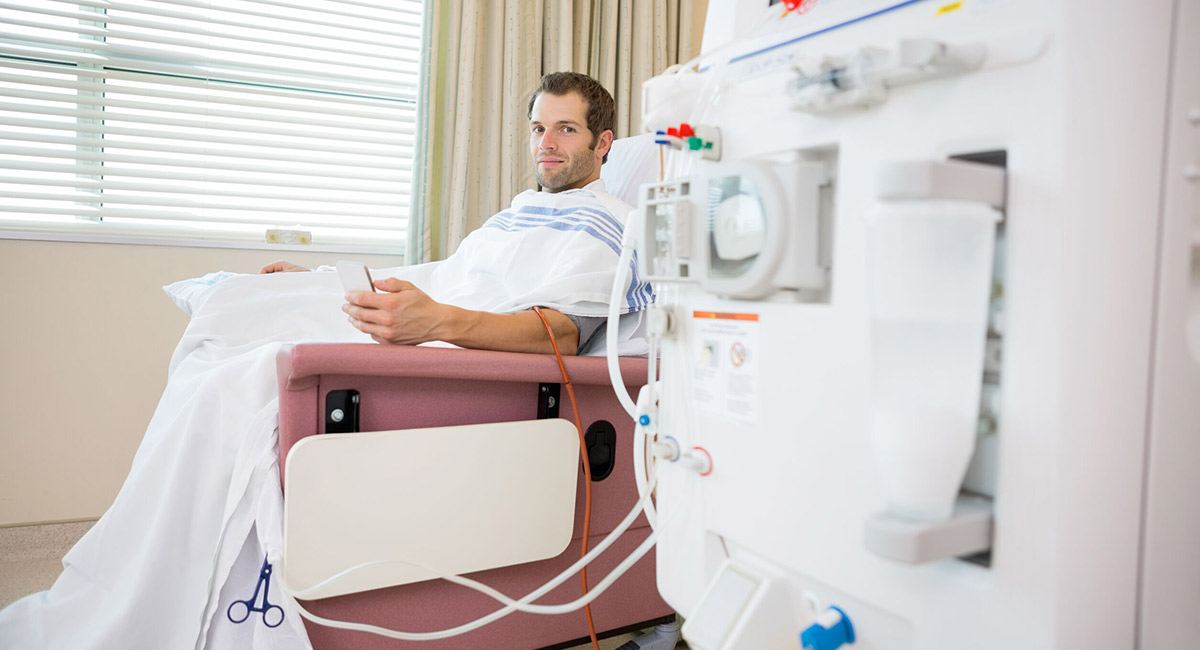If Proposition 29, which would impose a variety of unnecessary regulations on the dialysis industry, sounds familiar, that is because it is the third such measure placed before California voters in five years. And it is just as odious and unnecessary as the other two.
Prop. 29 is yet another measure being pushed by Service Employees International Union-United Healthcare Workers West. It would require a doctor, nurse practitioner or physician assistant to be on site at kidney dialysis clinics at all times and require reporting of dialysis-related infection information to the state every three months. Yet, federal regulations already require each clinic to have a board-certified physician serve as medical director, and infection information is already reported to the U.S. Centers for Disease Control and Prevention to qualify for Medicare reimbursement.
Prop. 29 would also require clinics to report to the state, and disclose to patients, if a physician owns at least a five percent stake in a clinic and would prohibit clinics from refusing to treat patients based on who pays for the services.
These provisions are unwarranted and largely redundant, but this is all a secondary concern to SEIU-UHW West anyway. While cloaked in language about patient safety, Prop. 29 is yet another cynical attempt by the union to impose financial pain on an industry that it has been trying for years to unionize. This initiative, like Prop. 23 in 2020 and Prop. 8 in 2018, would harm patients by raising dialysis costs and forcing many clinics to close. But the union does not care about patient welfare if it can score some additional members and union dues in the process.
The dialysis industry, sensing an existential threat, has spent more than $250 million fighting these three measures, according to Ballotpedia. This is a win for the union regardless of the election’s outcome, since it knows that a $10 million or $20 million investment can force the industry to fork out five or 10 times that amount to defend itself. That is $250 million that the industry had to waste on protection money due to thuggish union tactics—money that it otherwise could have invested in opening new clinics, adding staff, paying for equipment, or improving services for patients.
In their rebuttal to the argument against Prop. 29, the measure’s proponents decry the industry’s “massive” $561 million in profits earned in California in 2020. But with about 650 licensed clinics in the state, that works out to a mere $863,000 average profit per facility. Moreover, the state’s nonpartisan Legislative Analyst’s Office estimates that the requirement to maintain a physician, nurse practitioner, or physician assistant on site would cost each clinic an average of “several hundred thousand dollars” per year—roughly 35 or 45 percent of its profits!
Sadly, it gets even worse. After driving some facilities to insolvency with pointless and costly mandates, Prop. 29 would force dialysis clinics to seek the government’s permission before closing or substantially reducing services. Should such a request be denied, facilities would apparently be forced to operate at a loss like some sort of indentured servant to the state.
As the Los Angeles Times editorial board observed, “The proponents says [sic] the proposition is intended to improve patient care. It’s an assertion they can’t back up with evidence. No other state requires a doctor on-site.... Nor is there evidence that the current arrangement has harmed patients.”
Indeed, patients do not seem concerned about dialysis facility quality or staff. According to the most recent In-Center Hemodialysis Survey Consumer Assessment of Healthcare Providers and Systems, California ranked in the top one-third of states in the quality of dialysis clinic care and operations (tied for 11th), staff (T-10th), and overall facility score (T-14th), and scored at or above the national average in every category.
The initiative process was designed so that citizens can weigh in on important matters, not so that special interests can use it to extort concessions from their opponents. Californians should consider amending the initiative process along the lines of “vexatious litigant” laws that prevent people from repeatedly filing lawsuits in bad faith. The content of Prop. 29 is bad enough and would harm dialysis patients, the industry and taxpayers alike, but California voters should also vote against it to send a message that they are tired of this abuse of the initiative process and render an overwhelming defeat for Prop. 29.









